Product Search

As a global corporate citizen, Delta Electronics Group commits to upholding human rights by incorporating internationally recognized human rights related practices, namely The Responsible Business Alliance (RBA)’s Code of Ethics and International Labour Organization’s (ILO) labor standards into the Company’s operations. In addition, the company’s human rights policy is developed based on the UN’s Guiding Principles on Business and Human Rights – UNGP.
In Part 6 of our series on Delta Thailand’s sustainable development (SD) we take a closer look at Delta’s actions to uphold human rights and diversity and our steps to begin the journey to greater equity and inclusion that provides a better tomorrow for each individual in our organization.
Delta Human Rights
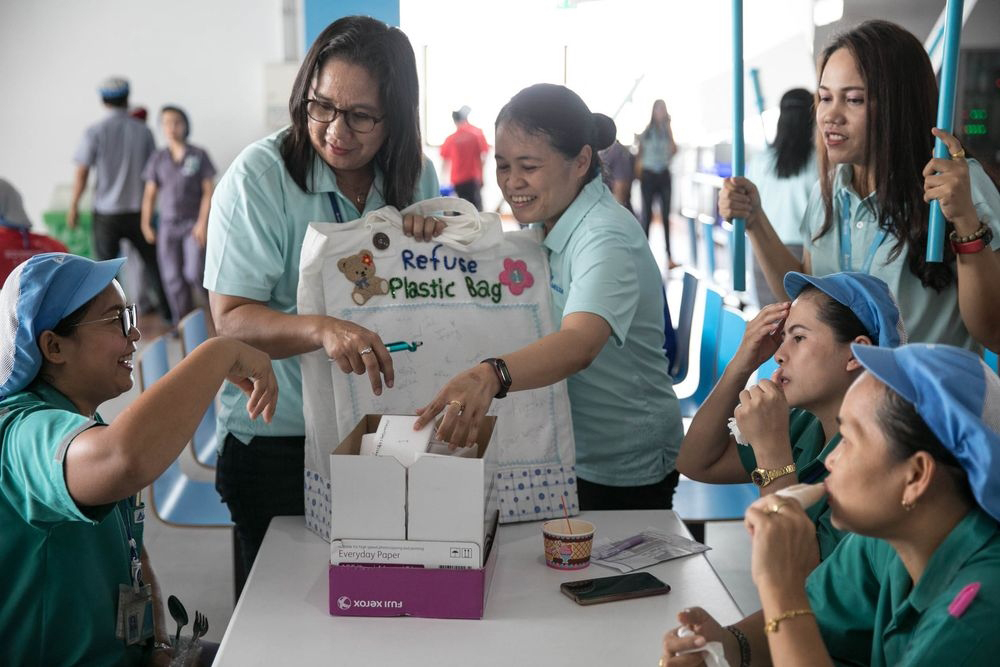
In a previous article we talked about Environmental, Social, and Corporate Governance (ESG) which are the three central factors in measuring the sustainability and social impact of business investment. Strong ESG performance makes us a globally competitive business, sustainable operation and ultimately gives us the social license to operate in Thailand and the region.
Among the three pillars of ESG, governance is key growth opportunity when compared to Delta’s strong performance in both environment and social aspects. Delta Thailand’s Human Rights Policy is a core of our governance factor in our ESG.
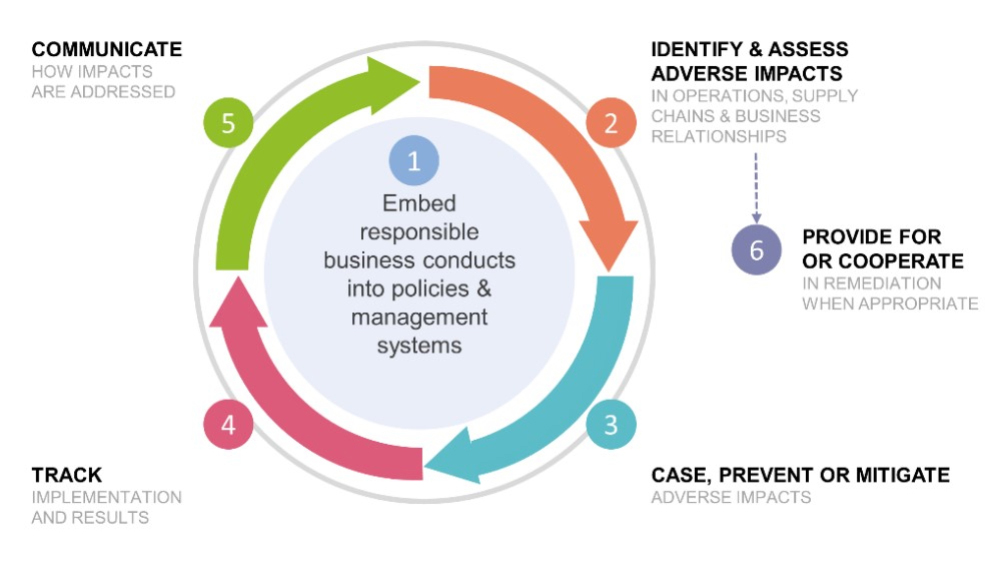
Source: OECD Due Diligence Guidance
Delta adopts OHCHR’s guideline to implement its due diligence on human rights protection. Our Human Rights Policy covers:
Any person (employee or third-party) can report complaints or suspected violations of human rights under this policy via email at Whistleblow@deltathailand.com. The company provides protection to an individual who files a complaint which will be kept confidential. The accused will not be considered guilty until the complaint is fairly investigated and proven to be well-founded.
Delta publishes and informs our employees and stakeholders about our Human Rights Policy. In addition, we raise awareness and offer 3rd party training at our company including seminars Human Rights by judges from the Samutprakarn Provincial Court.
Children’s Rights
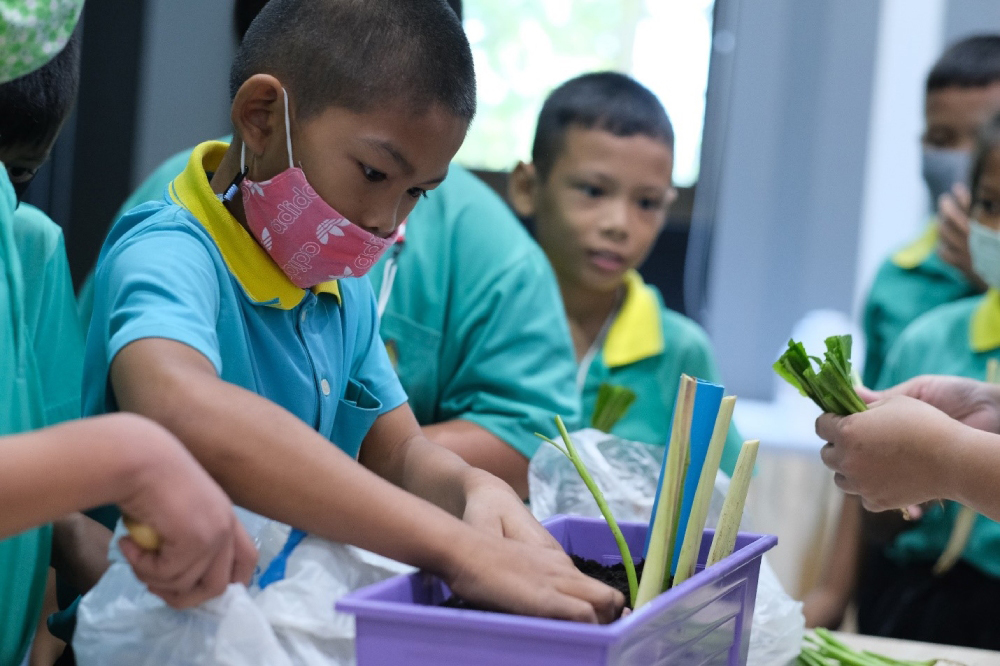
With over 30 years of operations in Thailand, Delta has provided opportunities for education and an improvement living environment to children in our communities. Since 2018, we have engaged with UNICEF Thailand to support children’s rights in the country. In 2021, Delta received “Leader” rank in the 2020 Global Child Forum and Boston Consultant Group Southeast Asia corporate benchmark.
Delta’s Statement of Commitment to Children’s Rights Policy is a part of our corporate policy and we strictly follow all Thai labor law and international industry standards including the RBA, ISO26001, ILO and UNSDGS. The Delta Energy Education Program (DEEP) set a target of 42,000 training hours from 2016 to 2023. By the end of 2018, we had already far exceeded our targets for both student training hours and employee participation hours with a student satisfaction rate of over 90%.
Every year, Delta offers scholarships to children of employees and provides scholarships and bursaries to rural school children in Northern Thailand. This is in addition to renovation and equipment donations to schools in our communities across the country.
Diversity and Inclusion

The Delta Group Human Rights and Employment Policy (as of June 2022) includes our commitment to Diversity and Inclusion as one of our fundamental principles. According to our global policy (also covering Thailand), Delta advocates a corporate culture of diversity and inclusion, respect for individual differences, and the integration of diverse viewpoints to strengthen the unique competitiveness of the company. We value the diversity and inclusion in staffing of people with disabilities, gender diversity, ethnic and racial minorities, and track the implementation status year by year in various management levels and employees, own operation processes and supply chain management.
As the largest electronics company listed on the Thailand Stock Exchange, Delta is a major employer attracting around 17,000 employees. In 2020, women made up around 70% of our total workforce. Among management, 43% are female and 71% are natives of the country of employment. Delta works with the Thai government to create woman-friendly workplace. Facilities and programs for mothers include family planning and nutrition, free baby strollers, special production lines for pregnant women and breastmilk pumping room. All pregnant employees are given priority when departing from work.
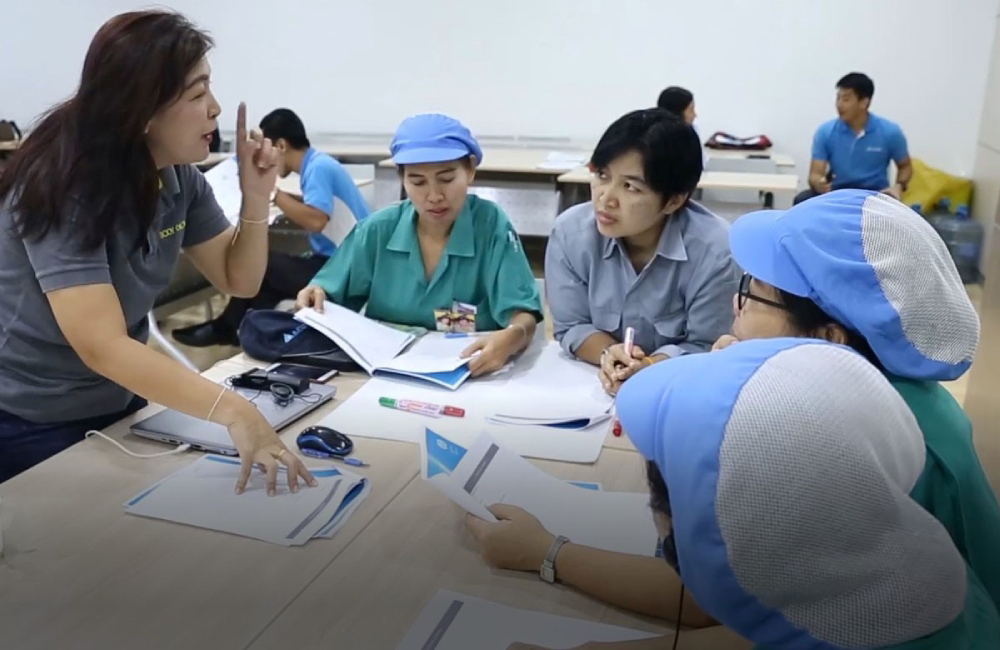
Meanwhile, Delta works with international partners to conduct training and upskilling programs to prepare our large female workforce for the Industry 4.0 workplace. We also work with our global customers to leverage technology to promote women empowerment and sustainability to a wider audience. In 2019, the Google Responsible Supply Chain team selected Delta as a key sustainable supplier to make their 360 degree virtual reality (VR) film and augmented reality (AR) app experience-Powered By Me. Google premiered the groundbreaking mix of technology and artistry in November 2020 to offer viewers around the world a uniquely immersive experience of the work and life of Delta women who build the equipment that supports Google.
In 2021, Delta Thailand became the first in the Delta Group to engage our LGBT community to raise awareness on diversity during June Pride Month. This year, HR has setup a working group to form and implement a company DEI strategy. In our initial stage, we discover what DEI is, why we need it and how to start implementing it with the following proposed actions:
A Business Case for Diversity
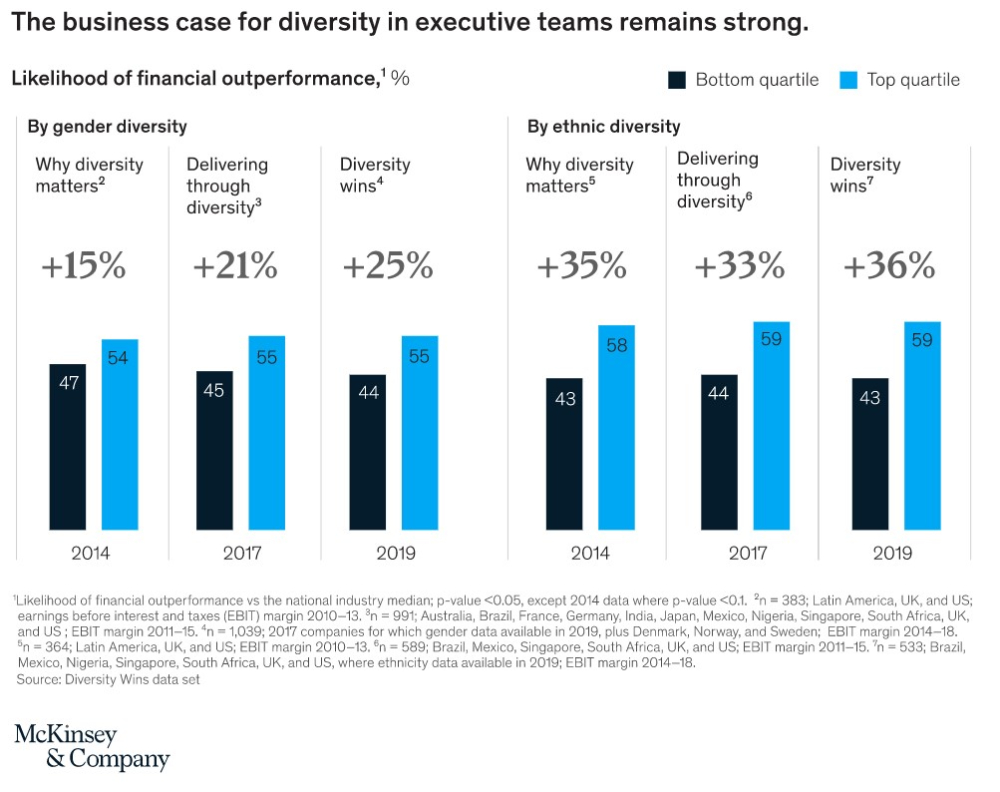
Source: McKinsey & Company-Diversity wins: How inclusion matters
Since 2014, McKinsey has investigated the business case for diversity with a data set encompassing 15 countries and more than 1,000 large companies. In the 2019 McKinsey DEI report, analysis finds that companies in the top quartile for gender diversity on executive teams were 25% more likely to have above-average profitability than companies in the fourth quartile—up from 21% in 2017 and 15% in 2014.
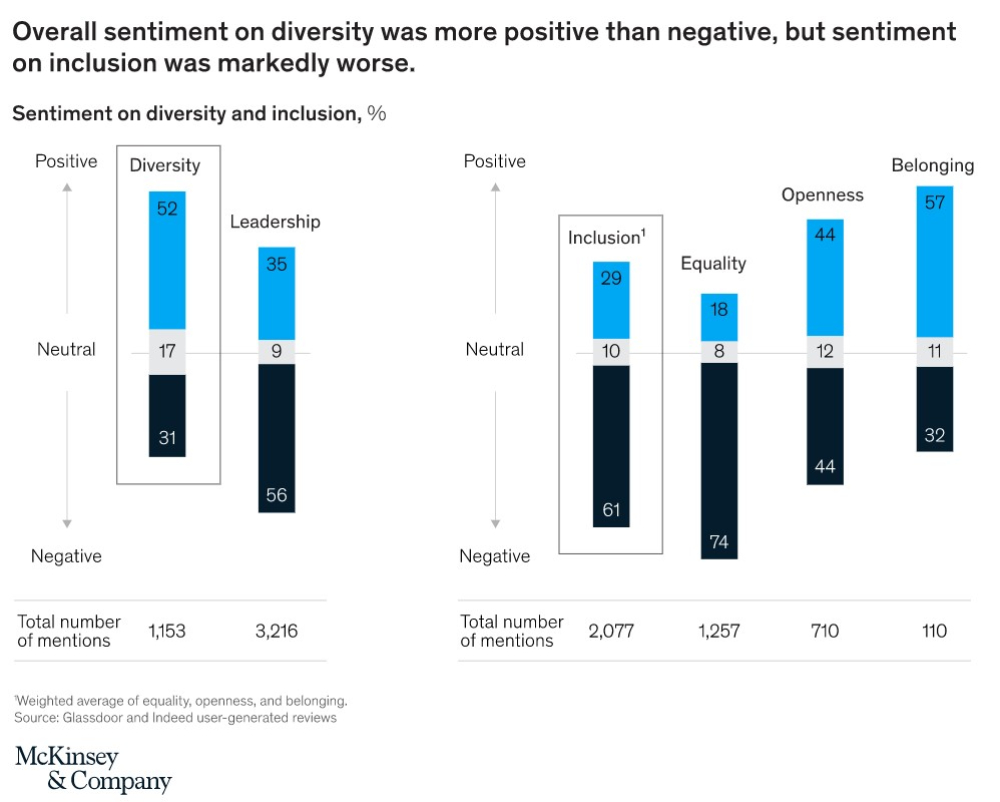
Source: McKinsey & Company-Diversity wins: How inclusion matters
The study also found that while there is positive sentiment among employees for diversity, inclusion is lagging with high levels of negative sentiment about equality and fairness of opportunity. In contrast diverse companies, which are more likely to outperform financially, take a systematic approach and bold steps to strengthen inclusion.
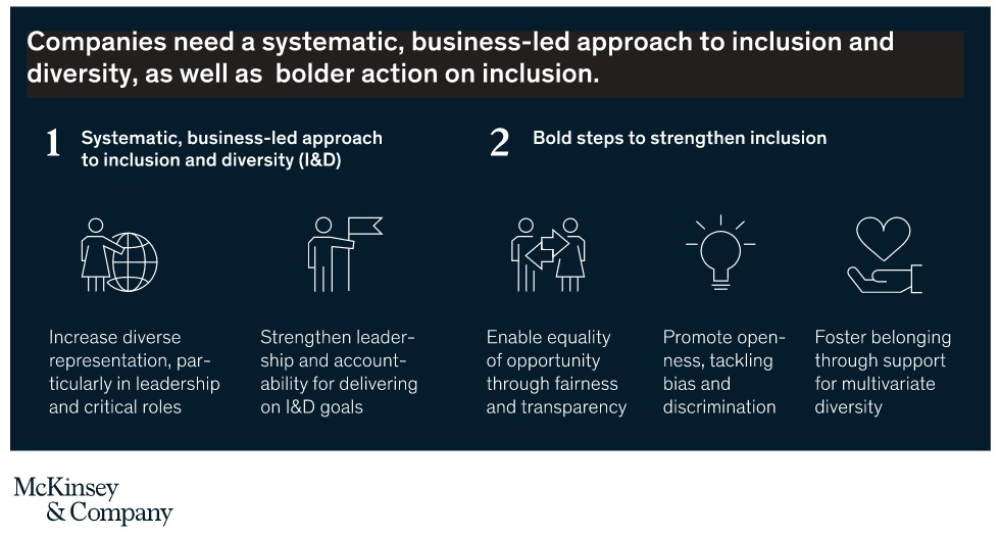
Source: McKinsey & Company-Diversity wins: How inclusion matters
McKinsey’s report aims for a robust business case tailored to the needs of individual companies, evidenced-based targets, and core-business leadership accountability by highlighting five areas of action:
Hope for Change Drives Sustainable Growth
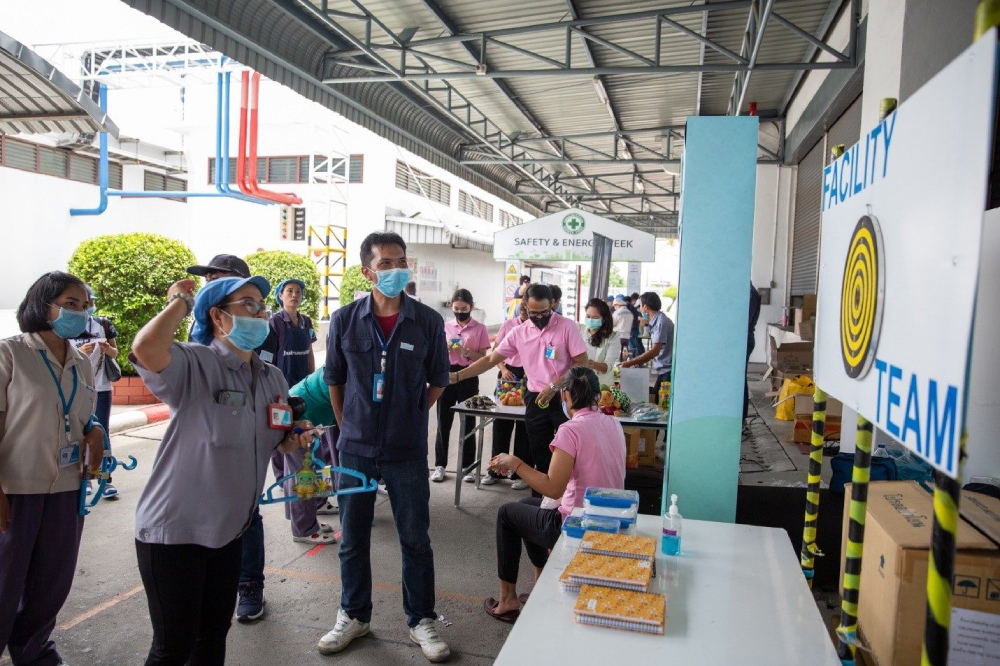
As we pass our initial stage of establishment and high growth, we must prepare to be an equitable place where our next generation can have as equal opportunities as the pioneer generation to carry on robust growth in an ever-changing global landscape. This includes having the courage to identify gaps and strengthen our sustainability by upgrading our structure and systems for a more supportive, fair and inclusive organization where empowered individuals can succeed.
Although we face a long road ahead in DEI, our foundation of respect for human rights and commitment to core values for sustainability can motivate us to start on this journey and take bolder steps to ensure diversity in terms of acceptance and representation. We hope that besides earning a living, Delta Thailand may one day become a place where each individual in our diverse workforce has a fair chance to change their destiny and build a better future for themselves and their families.
Delta’s brand promise is, “Smarter. Greener. Together”. As such, we must deliver not only smart innovation and green building and solutions to save energy, but we must also work “together” with all employees and our communities to truly live up to our full potential as sustainability leaders.